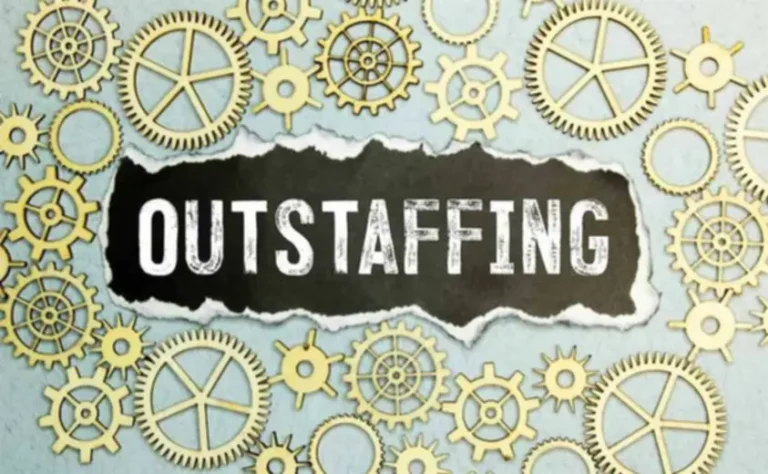Using our ADKAR Mannequin, leaders and teams https://www.globalcloudteam.com/ focused on particular person adoption to ensure each worker could efficiently navigate the shift to a unified service mannequin. SURA added 2.three million new shoppers, decreased turnover by 44%, and reached $706K cost-savings through elevated buyer and worker loyalty. Simply as importantly, the organization built a repeatable model to support future digital and cultural transformations. SURA, a multinational financial providers firm, was navigating a number of high-impact initiatives at once—including digital innovation, workplace restructuring and regulatory modifications. Success would require cultural alignment and employee engagement across borders. One instance that has been pretty profitable is the 3GPP consortium, which introduced a bunch of requirements inside cell telecommunications.
The State Of Quantum Readiness In 2024 Integration
These real-world examples present how organizations achieved lasting impression by putting folks at the heart of their change journey. For anyone mapping their very own digital transformation strategies, these classes prove what’s attainable when change is managed with readability, construction and intent. Learn Deloitte’s full Earning digital trust report to be taught extra about how rising applied sciences might help your organization improve digital trust.
With cyber everywhere, it’s a shared responsibility, proper across your enterprise. Our expertise with cyber permits us to build a culture of understanding, connection, and belief digital trust services with you, your organization and your wider neighborhood. Drechtsteden, a regional Dutch government alliance, was working with eight disconnected service desks. This resulted in inconsistent service delivery, fragmented processes and declining buyer satisfaction across 11 municipal shoppers. Integration was essential, however success hinged on aligning individuals, not just methods.
New Fashions For Building Digital Trust
Nonetheless, if firms want to shield clients and provide a frictionless customer expertise, they should begin establishing digital trust with their users early within the buyer journey. As people started to use browsers to eat information available on the internet, it became crucial to ensure that we might trust what we saw in the browser and that others couldn’t easily know what we had been taking a glance at. The browser that changed the world was Netscape, where a group led by brilliant cryptographer Tahel El Gamal gave us the aptitude to offer safety in internet communication. The SSL protocol is predicated on using so-called digital certificates and public key cryptography. This invention gave users on the web the potential to attach securely to web sites, thus providing trust within the web, and it is protected to say it was one vastly essential contributing issue in direction of the digital transformation of our societies.


And as digital belief issues each self-discipline and follow throughout your group, it’s critical to explore and frequently assess which tools will make the most important distinction to the protection of your customers and the expansion of your small business. Given its revolutionary and transformative potential to assist digital trust and security, blockchain know-how should be on each organization’s radar as a tool to help organizations authenticate id, set up asset ownership, and automate belief. Equally, AI might help improve identification and entry administration, recognizing unauthorized access or abnormal user habits to block bot accounts and stop phishing attempts and social engineering or ransomware attacks. Organizations with totally deployed AI options can have as much as 80% decrease cost impacts from data breach incidents than those with out, based on IBM. From patient health to person interests, AI can help ensure knowledge is used as intended, flagging mental property of various media to identify copyright infringements.
“When we make a trust determination, we try to determine if the individual, process, or organization we’re going to put our religion in has the power, integrity, and benevolence to follow by way of and earn our trust.” © 2025 KPMG LLP, a Delaware restricted legal responsibility partnership and a member agency of the KPMG international group of independent member firms affiliated with KPMG Worldwide Restricted, a private English company limited by assure. Though we endeavor to provide accurate and well timed information, there may be no guarantee that such information is correct as of the date it is obtained or that it’ll proceed to be accurate sooner or later. No one should act upon such data without acceptable professional advice after a radical examination of the actual state of affairs. A Quantity Of issues are making it more and more challenging for enterprises to consistently set up and keep confidence of their digital experiences. It is the combination of a predominant mindset, actions (both huge and small) that all of us commit to daily, and the underlying processes, programs and methods supporting how work gets carried out.
When project management and alter administration are aligned from the start, organizations can ship both technical outcomes and lasting business results. The Prosci Unified Value Proposition demonstrates the power of this integration. It offers a framework for bringing together the technical and folks aspect of change for sustained success.
When clients belief a business to deal with their private information responsibly and prioritize their privacy, they’re extra likely to stay loyal to that business over time. By demonstrating a commitment to digital belief, businesses can establish themselves as dependable partners, strengthening the bond with clients and rising repeat enterprise. When clients trust a enterprise, they feel extra comfortable sharing their personal information and making purchases on-line.
- Beyond the 5 core components of a digital belief program discussed above, it’s essential to continue to collaborate with industry friends and search out business sources.
- The results of our survey of more than 1,300 enterprise leaders and three,000 consumers globally recommend that establishing belief in products and experiences that leverage AI, digital technologies, and knowledge not only meets shopper expectations but also may promote growth.
- For extra information about the processing of your private data please verify our Privacy Coverage.
- However, what’s less obvious is the quantity enterprise retailers lose as they fight fraud on a reactive foundation.
- In this examine, we focus on superior technology enablers that organizations can discover, over and past existing cyber measures, to reinforce digital trust.
If missed, a robust blockchain-based answer may help easily confirm the transaction particulars and set up fail-safe mechanisms inside a smart contract. Moreover, by way of a data-trust setup, the quantity of compromised knowledge could probably be minimized. Lastly, in case your organization sometime implements quantum-resistant safeguards within community and communications channels, different organizations can have a lot stronger confidence in the integrity of your data and transactions.
Though digital belief is a typical time period, not all companies are reaping the advantages of being a digitally trustworthy provider and partner. Organizations that aren’t investing in improving kotlin application development their digital trust are probably missing out out there for talent, capital and prospects. For one, as extra products and services are enabled by fashionable applied sciences, the scope of digital trust is expanding, with impacts on all facets of an organization’s activities. AI and ML patents are rising at a brisk tempo (35%) and supply numerous avenues at present for organizations to reinforce digital trust across applications and use instances. Prosci research confirms the significance of a human-centric approach to transformation initiatives.
Digital trust is crucial to this, because it helps construct buyer loyalty, safeguarding an organization’s model and minimizing the danger of cybersecurity threats. As such, reexamining the five the cause why digital belief is important shall be inside the purview of any dynamic company. By modularizing digital belief practices, companies can achieve the customization and flexibility needed to ship outcomes for purchasers whereas safeguarding their information and data. Integrating AI and automation into safety processes, similar to certificate management, ensures enterprises keep operational speed. With NIST introducing new PQC algorithms, businesses must transition from counting on two or three algorithms to securing their environments with six, seven or more—requiring each agility and precision. Digital trust must be tailored to fit an organization, aligning seamlessly with its instruments, processes, packages and finest practices.
Also, data trusts combination high-value information; so even when the data is bodily distributed, it is still a target for cyberattacks. Two of them, AI-based information monitoring and cloud-enabled information trusts, are more and more nicely established; two rising applied sciences, blockchain and quantum, will likely disrupt digital belief in the years ahead. Mapsted’s world-leading location technology makes use of progressive self-learning algorithms to supply indoor and out of doors positioning know-how utilizing smartphones. Mapsted expertise collects signals corresponding to GPS, WiFi, Bluetooth, accelerometer, and others to determine location however does not use this info to determine people, thereby protecting privacy. When customers use our location-based providers, Mapsted might present them with relevant content material including location-based promoting. We may gather different info in accordance with moral data collection and usage policies.
This is illustrated by Denmark, Germany, Austria, and Sweden – all nations boasting a level of trust coupled with environment friendly cyber security measures. PwC’s Global Digital Belief Insights Survey reveals that one out of every 4 corporations worldwide (27%) have endured a data breach within the previous three years, with losses ranging from US$1- 20 million. North American organizations report a good larger rate–34%, while solely 14% of all surveyed corporations worldwide have reported no information breaches in this time interval. One resource is The Data & Belief Alliance, a non-profit group centered on the adoption of responsible knowledge and synthetic intelligence practices. Now, let’s apply this framework to digital trust — the confidence, flexibility, and empowerment in the relationships between individuals and organizations in relation to your data.
